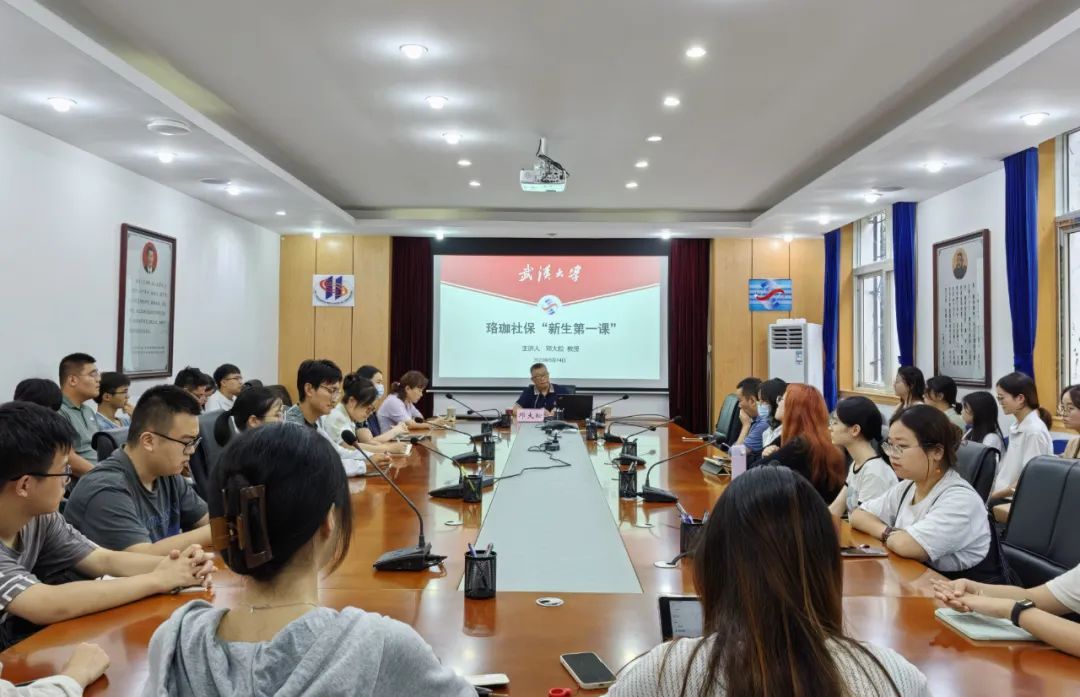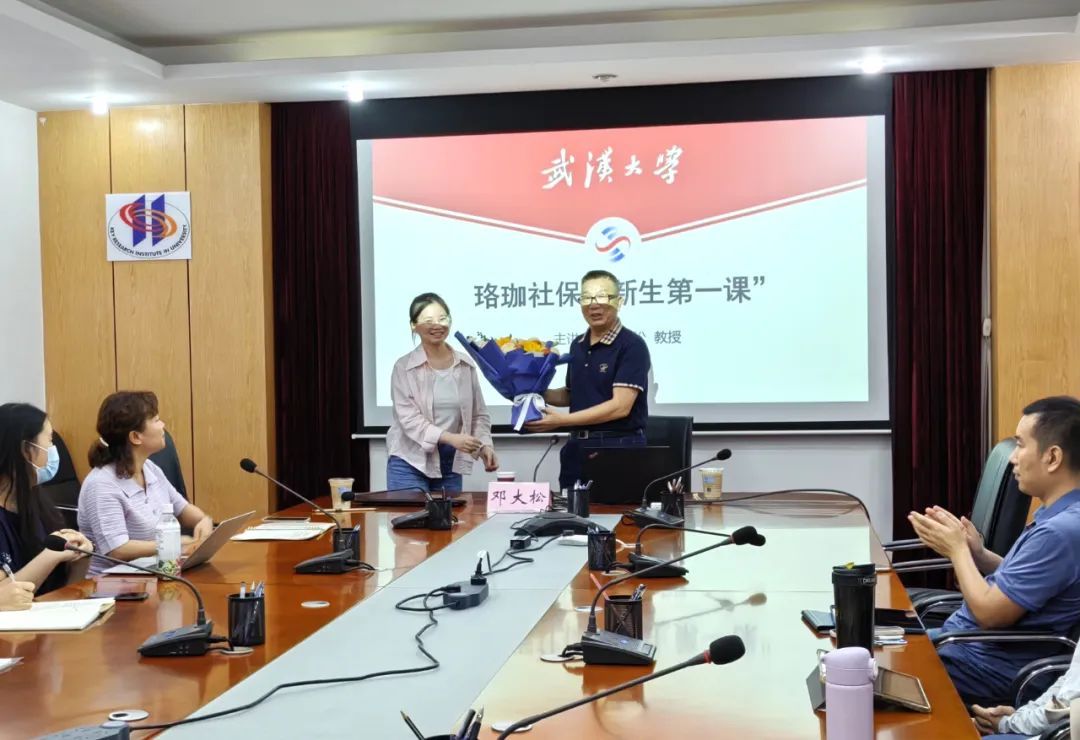
TALENTS
TEACHING ACTIVITIES
Position: TALENTS > TEACHING ACTIVITIES > Content
[Teaching Activity] The First Lesson of Luojia Social Security Freshmen
Author: Upload Time:2023-09-19 Views: Go Back
On the afternoon of September 14, 2023, Professor Deng Dasong, director of the Academic Committee of the Social Security Research Center of Wuhan University, the key research base of Humanities and Social Sciences of the Ministry of Education, and the first chief expert on Marxist theory research and construction engineering, brought "the First Lesson of Luojia Social Security Freshmen" to the 2023 freshmen majoring in social security and public economy management.

The lecture was hosted by Professor Meng Yingying, Director of the Department of Public Economics and Social Security, School of Politics and Public Administration, Wuhan University. Associate Professor Zhang Ping from the Department of Public Economics and Social Security and other teachers and students majoring in social security and public economic management attended the lecture. Professor Deng Dasong first fully affirmed the discipline construction, talent construction, textbook construction, curriculum construction and social impact construction of the social security major of Wuhan University, and then led the teachers and students present to review the establishment and development process of the social security major of Wuhan University from the 1970s to the present, with the efforts of Professor Deng and other predecessors. Through the summary of history, Professor Deng pointed out that the sustainable development of the social security profession cannot be separated from a profound theoretical foundation. Then, Professor Deng put forward the current challenges and problems facing the development of social security in China. First, the rapid development and change of social practice today are mainly manifested in: 1. Social security has changed from the historical category to the natural category; (2) The development of social security (especially social security services) from universal to personalized; 3. The development of the social security system from one pillar to multiple pillars; 4. The social security subject changes from single subject to multiple subject; 5, social security from a single security to a comprehensive security transformation; 6, employment positions, employment content from relatively stable to high mobility; 7. Development of social security fund management from localization to national overall planning; 8. Social security develops from localization to internationalization and globalization; 9. Social security actuarial calculation develops from traditional algorithm to cloud computing; 10, knowledge and information dissemination from wired and wireless to network, information, digital development. Faced with this series of new changes, Professor Deng believes that the basic theoretical system of social security needs to be further enriched and improved, emphasizing that teachers and students must lay a solid theoretical foundation and build a solid theoretical system.
Second, China's aging problem is serious, facing a situation of getting old before getting rich. At present, it is difficult for children to undertake heavy responsibility for the elderly. Public pension institutions are scarce and private pension institutions cost relatively high. There is a long way to go in the development of the aging cause and the aging industry in our country. Third, the pension fund is not enough to pay. Worries about pension shortfalls have long been growing. The three conditions necessary for raising the retirement age - surplus means of production, sufficient employment, and a relative shortage of the working population - have not yet been fully met. Measures such as converting state assets and lowering pension standards also have great limitations. Fourth, the problem of difficult to see a doctor and expensive medicine is still the concern of ordinary people, worrying things and annoying things. From the top-level design, to management, investment, where the crux is still not solved. Fifth, there are many constraints on the national pooling of basic pensions. Is it a lack of ability to implement management decisions, or the prevalence of protectionism in regional interests, or other reasons? Professor Deng believes that the uneven development of regional productivity is an important reason for the low level of co-ordination, and there are other reasons that need to be explored. Faced with this series of challenges, Professor Deng earnestly urged social security students to read three books: read "professional books" through careful study of courses, textbooks, reading materials and tools and technologies; Through active participation in social research, social activities, in-depth practice, read the "social book"; Through early establishment of life goals, planning career development, cultivating a good mentality to read "their own book". Professor Deng hopes that social security teachers and students will continue to work hard to become outstanding talents and build a better professional.

Finally, the student representatives presented flowers to Professor Deng. The lecture came to an end with warm applause from all the teachers and students. Professor Deng's wonderful sharing lifted the clouds and provided a strong boost for the future study and development of the social security teachers and students.
( Text| Yuan Chengyang)
WeChat public account
Sponsor Unit:武汉大学社会保障研究中心 Address:湖北省武汉市武昌区八一路299号 Postal Code:430072 Tel:027-68752238/027-68755887 E-mail:csss@whu.edu.cn



